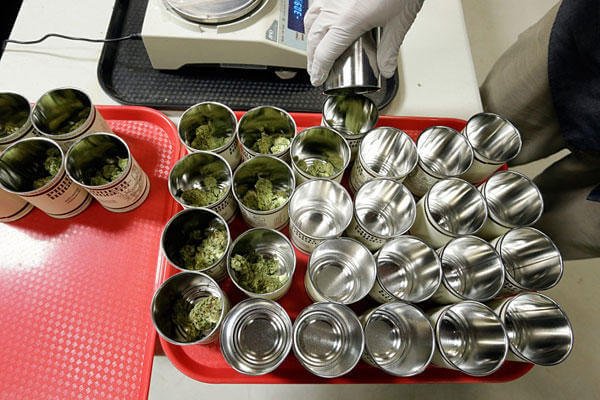Senate lawmakers on Thursday once again signaled to the Veterans Affairs Department they want VA doctors able to talk to patients about use of medical marijuana.
By a 20-10 bipartisan vote, the Senate Appropriations Committee passed an amendment to the military construction and veterans legislation allowing agency doctors to make recommendations to vets on the use of medical marijuana -- something they can't do now even in states where cannabis prescriptions are legal.
"We should be doing everything we can to make life easier for our veterans," Sen. Jeff Merkley, a Democrat from Oregon, said in a statement. "Prohibiting VA doctors from talking to their patients about medical marijuana just doesn't make sense. The VA shouldn't be taking legal treatment options off the table for veterans."
Medical marijuana is being prescribed in some states for symptoms of post-traumatic stress disorder, even though its effectiveness remains questionable.
The legislative amendment was sponsored by Merkley and Sen. Steve Daines, a Republican from Montana, who successfully got the same amendment through the committee in November, only to see it stripped from the bill by House lawmakers a month later.
The latest language still has to be considered by the full Senate and then be sent once more to the House for approval.
The VA won't comment on the lawmakers' actions on medical marijuana, but its website quotes a report by Marcel Bonn-Miller of the National Center for PTSD at the VA Medical Center in Palo Alto, California, and Glenna Rousseau of the VA Medical Center in White River Junction, Vermont, dismissing marijuana as useful in treating veterans.
"Controlled studies have not been conducted to evaluate the safety or effectiveness of medical marijuana for PTSD," the report states. "Thus, there is no evidence at this time that marijuana is an effective treatment for PTSD. In fact, research suggests that marijuana can be harmful to individuals with PTSD."
The federal government in 2014 approved a study on medical marijuana to be conducted by the Multidisciplinary Association for Psychedelic Studies, a California-based nonprofit research center. But the research hasn't yet been completed.
-- Bryant Jordan can be reached at bryant.jordan@military.com. Follow him on Twitter at @BryantJordan.



























